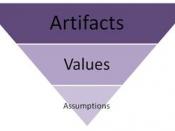Organizational BehaviorOrganizational behavior is the study and application of knowledge about how people (both individuals and groups) act within an organization. This analysis is accomplished by a systematic approach by interpreting people and organizational relationships in terms of the whole person, whole group, whole organization as well as the whole social system. The purpose of studying organizational behavior is to form better working relationships by achieving not only organizational objectives but also human and social objectives.
By studying organizational behavior, it is possible to identify strategies to get people to practice effective teamwork, accomplish their jobs more efficiently, and encourage people to be more innovative and flexible. Learning and interpreting data through the study of organizational behavior enables those in leadership positions, such as managers, to identify problems, determine how to correct them, and change behavior accordingly so that individual performance and subsequently organization effectiveness increase.
Organizational CultureOrganizational Culture is described as the set of beliefs, norms, and values formulated from the interaction of the employees in the workplace.
These expectations or underlying assumptions are present in an organization with a primary function of providing stability, predictability, and comfort to an organization's participants through a process of shared learning that results in a common perspective. The culture allows an organization to deal with challenges and opportunities in a cohesive manner. In many business models, organizational culture is a crucial link between defined strategy and attainment of corporate goals. According to MIT Professor Edgar Schein, author of Organizational Culture and Leadership: A Dynamic View, an organization's culture develops as a mechanism to cope with its environment. Schein suggests that an organizational leader's success greatly depends on understanding organizational culture.
DiversityDiversity is composed of the human qualities that are different from our own and the groups we belong to; manifested...


